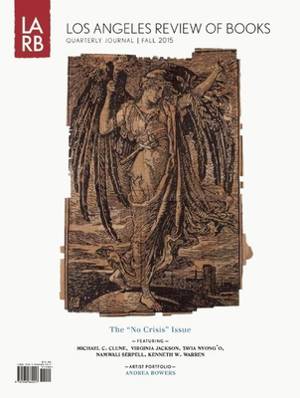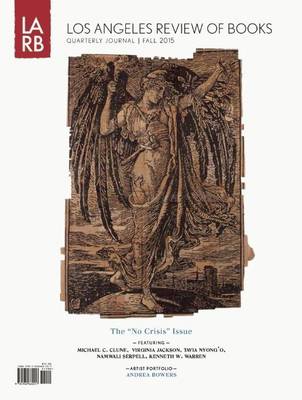
- Afhalen na 1 uur in een winkel met voorraad
- Gratis thuislevering in België vanaf € 30
- Ruim aanbod met 7 miljoen producten
- Afhalen na 1 uur in een winkel met voorraad
- Gratis thuislevering in België vanaf € 30
- Ruim aanbod met 7 miljoen producten
Zoeken
Los Angeles Review of Books Quarterly Journal
€ 11,95
+ 23 punten
Omschrijving
The Los Angeles Review of Books Quarterly Journal No Crisis" issue considers the state of critical thinking and writing -- literary interpretation, art history, and cultural studies -- in the 21st century. The last several years have been an era of crisis for the academic humanities, traditionally the home of the interpretive disciplines. Across the system of education in the United States there are, in fact, many crises. For our part, we see the crisis as the effect of economic and administrative decisions, not a failure of ideas. So, we asked a group of eminent critics to choose a recent critical text and to write about why it matters: not to coolly evaluate it but to stand and think with a critic whose writing they value. The essays produced are works of criticism in themselves; in them, and with No Crisis, we hope to show that the art of criticism is flourishing, rich with intellectual power and sustaining beauty, in hard times.
Specificaties
Betrokkenen
- Uitgeverij:
Inhoud
- Aantal bladzijden:
- 144
- Taal:
- Engels
- Reeks:
Eigenschappen
- Productcode (EAN):
- 9781940660257
- Verschijningsdatum:
- 19/01/2016
- Uitvoering:
- Paperback
- Formaat:
- Trade paperback (VS)
- Afmetingen:
- 190 mm x 239 mm
- Gewicht:
- 294 g

Alleen bij Standaard Boekhandel
+ 23 punten op je klantenkaart van Standaard Boekhandel
Beoordelingen
We publiceren alleen reviews die voldoen aan de voorwaarden voor reviews. Bekijk onze voorwaarden voor reviews.










